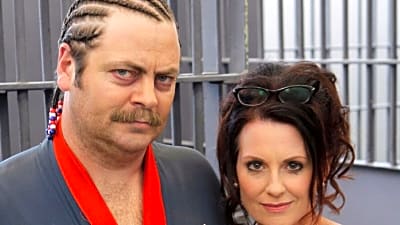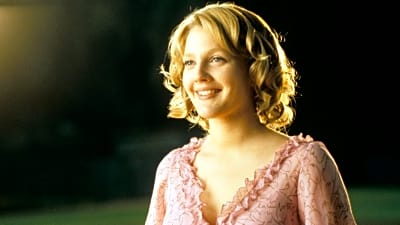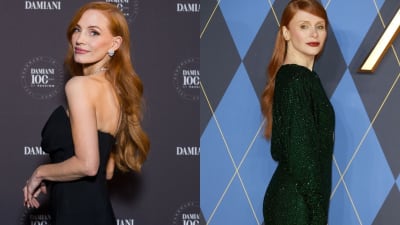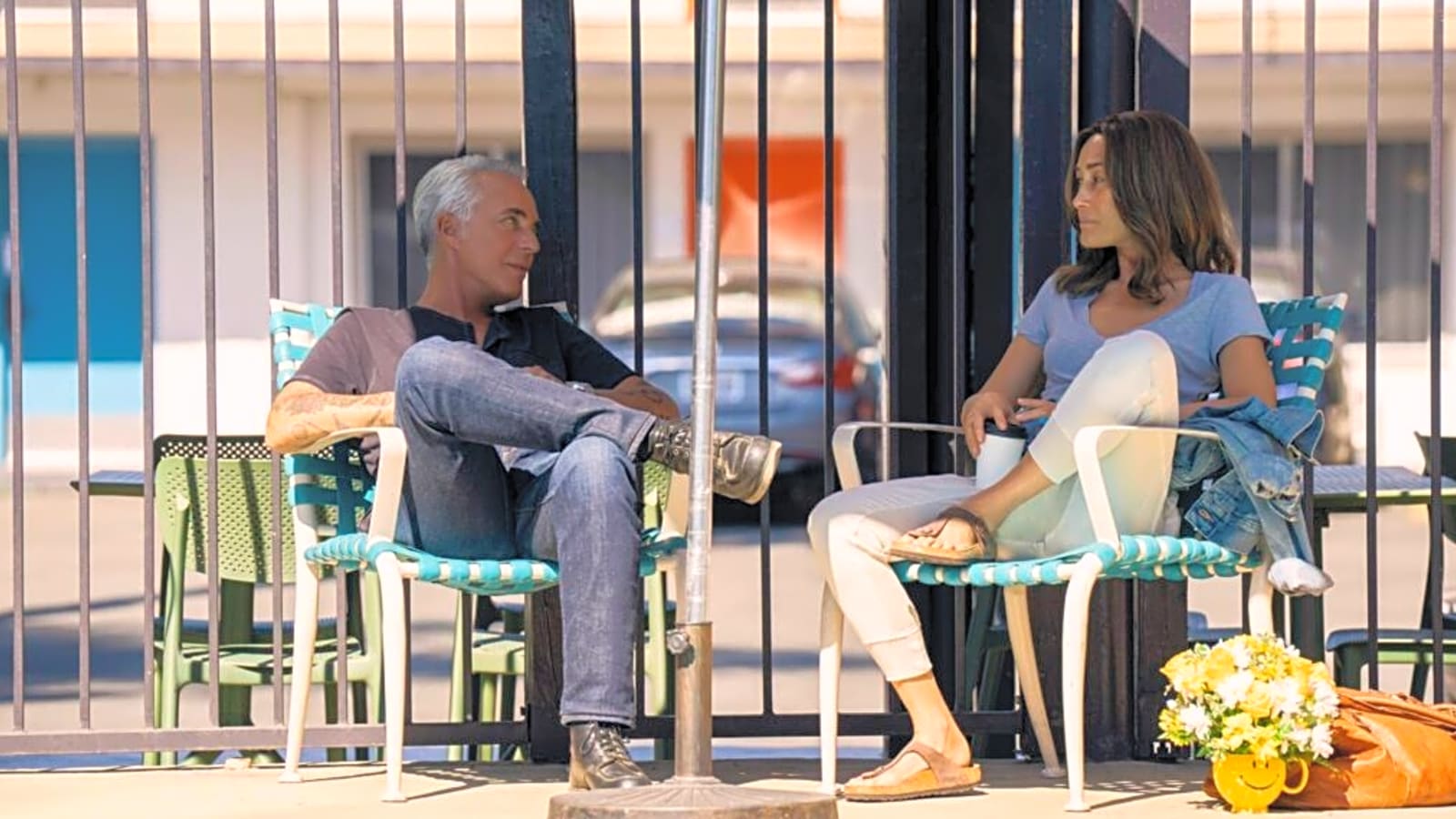
If you, too, are a Bosch fan who would have loved one more season of Legacy, here comes another Michael Connelly show based on his crime novels to help dull the pain. (Added bonus: Titus Welliver‘s Harry Bosch is a recurring character!)
Ballard is based on Connelly’s novels about police detective Renée Ballard, played here by Maggie Q (Nikita, Designated Survivor). Connelly, who’s also behind The Lincoln Lawyer derived from his Mickey Heller books, gives us a preview of what to expect in Ballard’s first season, which includes a serial killer with a string of victims, a murdered John Doe, and a dangerous conspiracy that strikes close to home.
Why did Renée Ballard seem a good bet for a TV show?
Michael Connelly: Probably the same reason why I wrote books about her. I was inspired by a real detective named Mitzi Roberts, who was helping me with the Bosch books. I didn’t think about asking about her career and her ascendence as a detective until well into our relationship and then when she started telling me stories about how she shaped her career, I realized that there’s some book stuff here. I liked the idea of a woman definitely overcoming obstacles in a male bureaucracy of law enforcement, and that’s where the books came from. I think that appeals to TV as well in terms of finding not only the drama you need in an investigation but also the personal drama of overcoming obstacles and being relentless about it. Relentlessness is a universal trait that appeals across the board, so that’s why I thought this could work.
We caught a little bit of Renée Ballard at the end of Bosch: Legacy, but can you tell us a little more about this woman?
She’s trying to figure out the problem of what she’s missing. What makes these kinds of characters interesting is that she’s good at what she does, she’s fierce about it, but there’s other stuff at work and other stuff going on. She deals with abandonment issues and issues within the department, which really come out in the first season of the show. The way people meet these kind of challenges and how they react and what they do is where you connect. 99.9% of people who watch this show have not solved murders, have not been detectives, but you’ve got to find ways of connecting with them. It’s really the personal characteristics that do that because Renée’s pretty relentless as a detective, but we all want to be relentless in what we do in our lives and so that can be a connecting point. That’s where I think the show works best.
It seems that Renée was demoted from the LAPD’s Robbery/Homicide unit to the underfunded Cold Case division. Why? Did she run into trouble from one of the higher ups in the LAPD?
Well, she made waves and as she says in the show, “What better way to get rid of someone who’s in your face than to stick them in a basement out of sight out of mind.” So, she’s [assigned] to run this Cold Case Unit where she has to find volunteers, who are a singular ragtag group of misfits. I don’t know if I’d call it demotion, more of a lateral move, but it is a political move to get her out of her boss’s face. At the same time, it’s about her finding that this is her spot. This is where she should be, and this is where her talents are best put to use.
What excited you about the Cold Case Unit?
I call them “time travel” cases. It’s really fascinating from the standpoint of a writer. You take a case and you pick the era it occurred, whether it’s 10, 20, or 30 years old. In one of the books, Ballard investigates the [notorious 1947] Black Dahlia murder case. It takes you back in time so you’re writing a contemporary story, but you’re also writing about this time period where society was different, forensics was different, and you get to explore that. I think Ballard’s pretty fascinating, and she works her way through some of these cases and these other times where things were quite different.
Are there flashbacks to when the crimes were committed?
No, in this TV show, we don’t employ flashbacks. There was a show called Cold Case about 10 years ago that always did that, so we wanted to have distinctly our own show. I don’t do flashbacks in the books either. So when I say time travel, it’s really a contemporary story looking at something in the past.
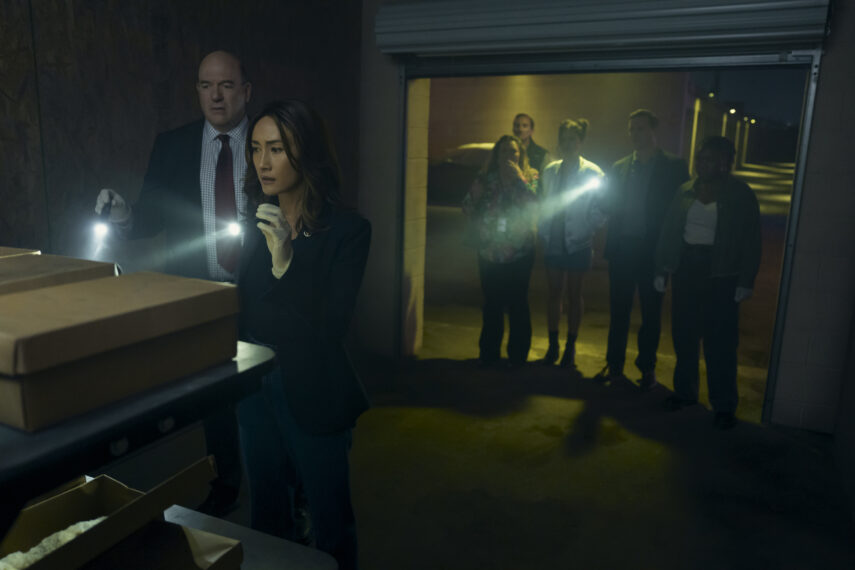
Tyler Golden/Prime Video
I was told that there’s one major case running through all 10 episodes. What can you say about that? Is the case in one of your books?
Yeah, it’s from a book I wrote called Desert Star. That was one through line, but that’s not going to work on a TV show. You need other stuff. So, there are wins in every episode, a weird balancing act where you have to have hooks at the end of every episode. That’s so the viewer wants to go on, but you also want to give them wins. So some minor cases get solved but also, the detectives find wins themselves that keep the momentum of the main case going.
There’s a tight team of three at the center of the department: Ballard is the unit’s chief, and she’s joined by Samira Parker (Courtney Taylor), a wary returnee to the police force, and her trusted former partner, retired detective Tom Laffont (John Carroll Lynch). How do they get along?
Yeah, those three are the mainstays. There’s also the volunteers, and Ballard’s boss, so there’s a couple points of friction, but for the most part, it is the first season, so it’s Ballard curating her team and making sure they can work together.
Do the volunteers mainly work on those smaller cases?
No, it’s a team effort, all directed by Ballard. They have different specialties; a couple of them are actually retired cops and they did this kind of work, but there’s a woman who’s a specialist in social media, and a guy who’s a specialist in technology, and they use [their skills] to solve crimes. So, it’s a team effort on all the cases they handle.
How often will Harry Bosch show up?
He does more than some might expect. It’s not like cameos, he’s not walking through scenes. He’s a contributor, who is in either three or four episodes, and he has an influence on the story. Basically, the unit starts looking into a case that Bosch worked for many years before, so he’s involved and that’s kind of where that comes from.
Can you say anything either about a major villain or some of the other villains they’ll come across?
Well, the main case is a politically fraught case one. The show follows real life in a big way. The LAPD, because of personnel demands, decided at one point to put more people out on the street and then they closed down Cold Case. There was a political uproar, so they reconstituted the Cold Case Unit with one detective who then had to curate a bunch of volunteers. That’s what happened in real life, and that’s what happens in the Ballard show. So that’s how it starts off — the very first case is a city councilman who’s responsible for restarting the unit. Twenty-five years earlier, his sister was the victim of a murder, and so he wants that to be the first case that they work on and that happens to have been the case that Bosch worked on. I’m not going to reveal who did it, but it does lead us to a series of villains that they’re after across the whole season.
Ballard, Series Premiere, Wednesday, July 9, Prime Video
More must-reads:
- The most memorable movies and TV shows set in the 1980s
- Danny DeVito says they "had a ball" doing the 'It's Always Sunny in Philadelphia' and 'Golden Bachelor' crossover episode
Breaking News
Trending in Entertainment
Customize Your Newsletter
 +
+
Get the latest news and rumors, customized to your favorite sports and teams. Emailed daily. Always free!

